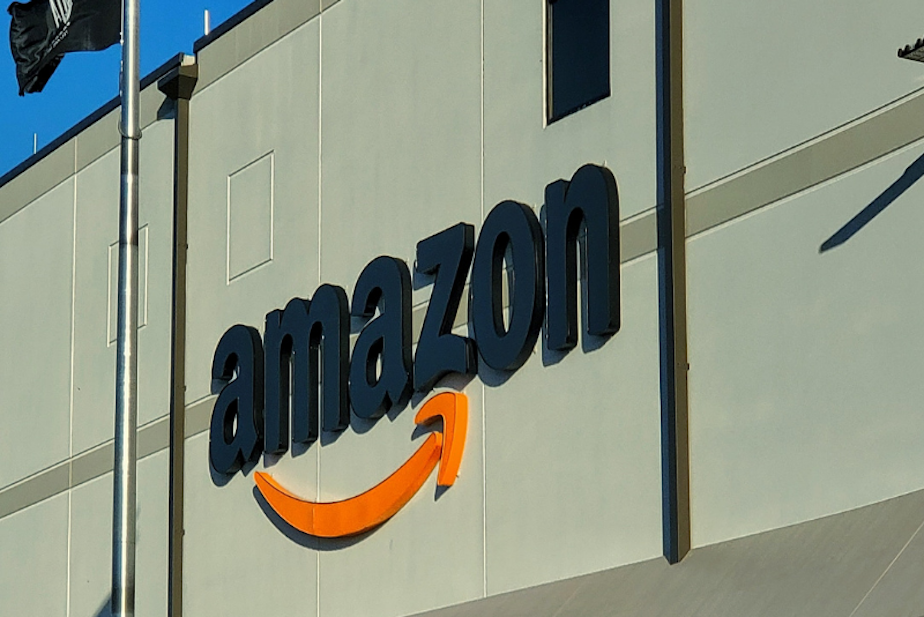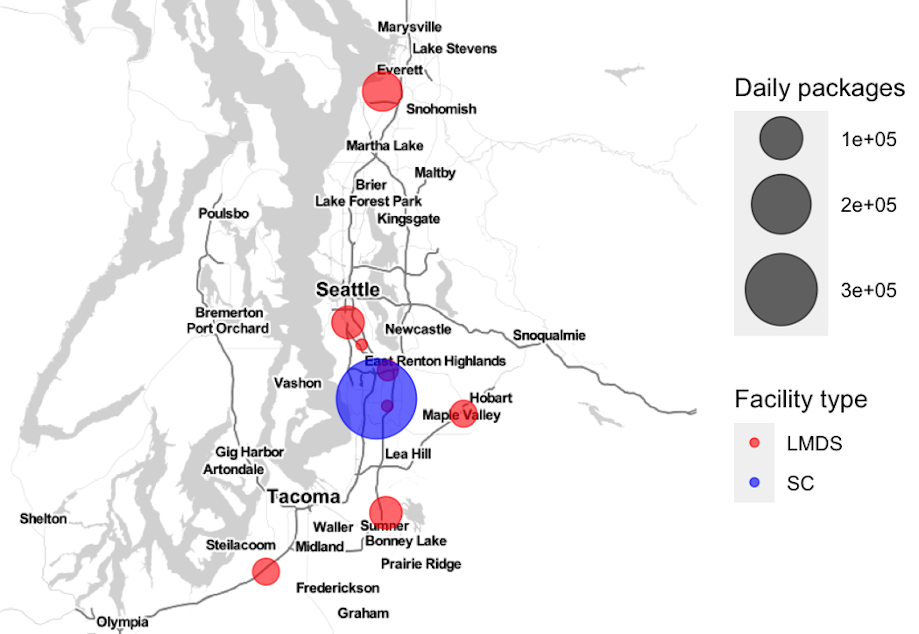Amazon 'last-mile' warehouses deliver more pollution than packages to people living nearby, study finds

In a first-of-its-kind research project, a University of Washington team studied the impact of pollution from delivering packages.
They focused on Amazon 'last-mile' delivery stations in the Seattle metro area, the last stops before a package hits your doorstep. The team found that people who live within 2 miles of these hubs are exposed to more delivery-related air pollution than people in outlying areas.

"The distribution center, it's where everything comes and goes," said Anne Goodchild, director of the UW's Urban Freight Lab and a co-author of the study. "So if you live closer to that, you are closer to all of the traffic, whereas if you live farther away then really the only traffic you're exposed to is the stuff that's coming to your house or your neighbor's house."
There are eight “last minute” hubs in the Seattle-Tacoma-Bellevue-Everett region.
Sponsored
The study, published in the journal Research in Transportation Economics, also found that neighborhoods near these stations are home to more low-income households and people of color compared to the rest of the metro area. And the people affected by the increased pollution were less likely to order packages than people who live farther away.
Those results weren't surprising, the researchers said, as warehousing and distribution centers have typically been concentrated in historically marginalized communities. They chose to focus on Amazon because it's the biggest player in the e-commerce market.
Next up, the team will be looking at how delivery-related air pollution affects different racial and ethnic groups as well as other vulnerable groups, such as older adults and people with disabilities.
As for how this information affects the average consumer, lead author Travis Fried said there's no easy solution.
"The idea behind this research is to show where we are now to look for improvements over time. If we're trying to improve something, we need to at least know where we start," he said.
Sponsored
Amazon spokesperson Steve Kelly said the company wasn't invited to be part of the research process. He claimed the study's methodology and conclusions are flawed, arguing that "the overall activity at a delivery station is likely similar to what you would see at shopping centers in neighborhoods across the Puget Sound region."
Kelly said Amazon works hard to be a good neighbor, touting the company's growing fleet of electric vehicles and its goal of reaching net-zero carbon by 2040.




